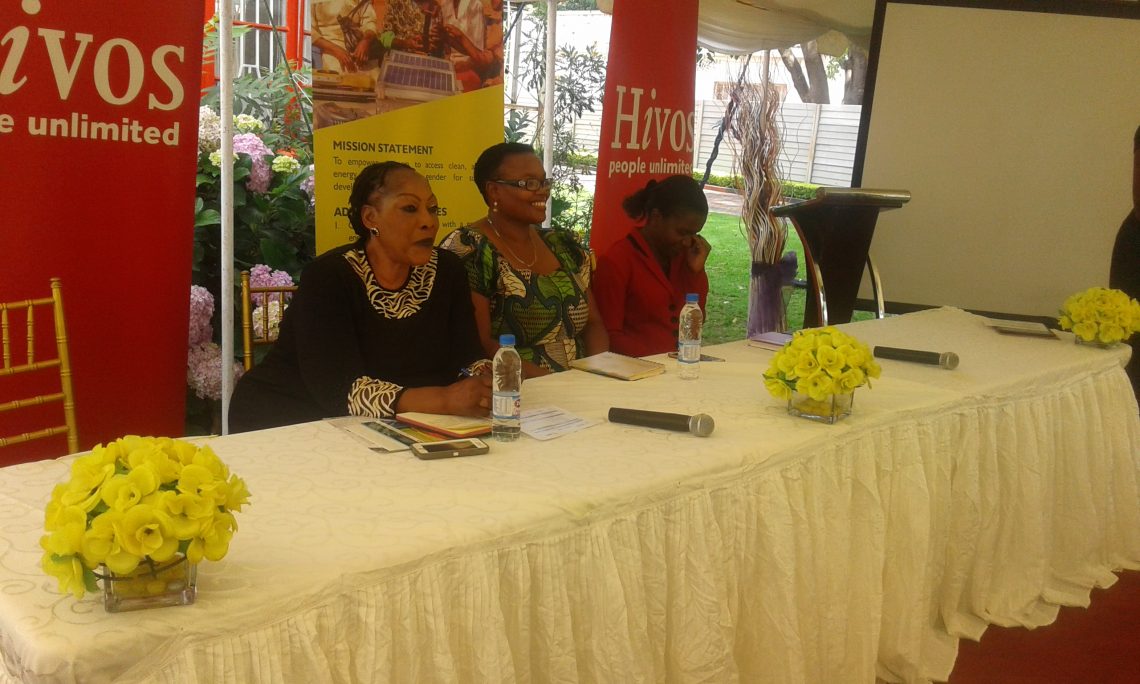By Patricia Mashiri
Women in Zimbabwe are seeking gender balance in the energy sector by involving themselves in the green economy activities which helps in saving resources such as electricity.
Women have been given stereotypical roles where they have been put in a domestic sphere where energy saving is critical . In trying to curb energy shortage imbalances women engaged themselves in energy making projects.
Hounarable Fanny Chirisa, from Mines and Energy Parliamentary Portfolio Committee at the launch of Gender and Energy Network in Zimbabwe (GENEZ) said women are few in the energy sector and must be improved . She said policy making should also include women to ensure gender balance in energy.
“We should participate in energy making through the use of green economy. Women are few therefore they should thrive to get the best in energy,” Chirisa said.
Energy economy improves livelihoods, supports social services , creates economic opportunities and growth for all while mitigating climate change impacts.
Speaking at the same event Ropa a young women entrepreneur who is into waste management and recycling said women are facing challenges while pursing the green economy programmes. She mentioned that her project of making cooking bags is surviving but in terms of marketing, the society is expecting to see men marketing her products.
GENEZ entered a Green and Iclusive Energy (GIE) partnership with other energy companies in advocating for gender and energy.
GENEZ’s role is to influence gender mainstreaming in national level energy policies and strategies, through revitalising a critical mass of gender activists to articulate the issues as a collective and advocate for change in relevant spaces.
The organisation’s aims is to mainstream gender and ensure that their implementation of policies remain visible and are adequately addressed.
Panganai Sithole, a representative for Zimbabwe Energy Council said GENEZ ‘s main focus is to empower children, youth and women in particular through skill development workshops, training programs, awareness campaigns as well as to use a multi-sectoral approach where civil society, finance and industry stakeholders Jodi hands based on their respective roles.






